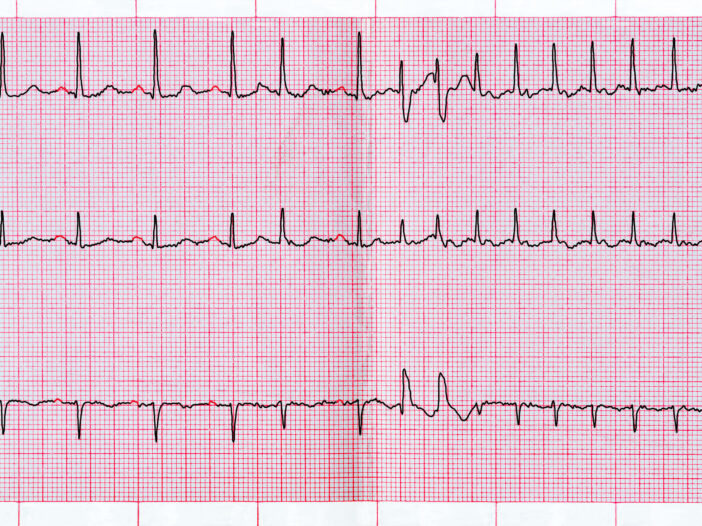
If your heart beats too quickly, too slowly or irregularly, you may be experiencing a condition known as arrhythmia, which is caused by problems with the electrical system that regulates your heartbeat. When the electrical system in your heart doesn’t work well, it can lead to potentially fatal complications, such as stroke.
At Central Maine Heart and Vascular Institute (CMHVI), we focus on the diagnosis and treatment of problems with the heart’s electrical system, such as arrhythmia, in our state-of-the-art Electrophysiology Lab. The Lab offers a range of diagnostic testing and treatment options to help patients feel better and reduce the risk of serious health complications that can result from problems with the heart’s electrical system.
Our electrophysiologists can prescribe medication or perform various procedures (including implanting medical devices) that can get it back in the right beat.
Diagnostic Testing
When you visit our state-of-the-art Electrophysiology Lab, our cardiac specialists will take your medical history and perform a physical exam. They’ll also perform one or more of the following diagnostic tests to learn more about your heartbeat.
- Electrocardiogram (ECG): This test uses small sensors (electrodes) attached to your chest and arms to record electrical signals as they travel through your heart.
- Echocardiogram: In this noninvasive test, sound waves are used to produce a video image of your heart in motion.
- Holter monitor: This portable ECG device is carried in your pocket or worn on a belt or shoulder strap. It records your heart’s rhythms for 24 hours or longer, giving your provider a prolonged look at any problems.
- Transtelephonic monitor: For infrequent arrhythmias or arrhythmias that come and go, this monitor attaches to your arms, wrists or fingers for a month or two. It records and stores information about your heart’s electrical system, which can be transmitted to your provider.
Treatment
If our tests show that you have arrhythmia or other types of electrical system problems in your heart, you and your provider will discuss the best approach to managing your symptoms and reducing your risk of complications. Treatments may include:
- Medication: Drugs used to treat electrical problems such as arrhythmias include anti-arrhythmia drugs, drugs that control heart rate and blood thinners.
- Pacemaker and Implantable Cardioverter-Defibrillator (ICD): AnICD is a tiny device implanted through a small incision in the collarbone during a minimally invasive surgery. The system includes a palm-sized device with electrical leads that connects to your heart to restore a normal rhythm. Recovery is quick; though some patients may stay overnight.
- Cardioversion: Cardioversion is a medical procedure for treating an abnormally fast or irregular heartbeat. Most commonly used for atrial fibrillation, atrial flutter or ventricular tachycardia, cardioversion sends an electrical impulse to the heart muscle, restoring normal heart rhythm. Cardioversion is usually performed as a scheduled treatment and may be repeated if the arrhythmia returns.
- Radiofrequency Ablation: For some heart arrhythmia conditions, providers recommend a procedure called ablation. During an ablation procedure, small areas of the heart muscle are purposely destroyed to create scars — called lesions – that improve the heart’s function by correcting a faulty electrical process.
- Catheter Ablation: This is a procedure that uses intense cold or high-frequency electrical energy to disrupt an abnormal heart rhythm. Ablation is performed surgically or with a thin, flexible tube (catheter) that is inserted into a blood vessel in the groin or neck and guided into the heart. Your provider uses the catheter for the ablation, which is done either with intense cold (cryo-ablation) or with high-frequency energy (radio-frequency ablation). Some patients require a pacemaker after an ablation is performed.
- Surgical Ablation: This procedure can be done with cryo-ablation, radio-frequency ablation, microwave ablation, ultrasound energy or laser energy. There are two types of surgical ablation: Minimally invasive via small chest incisions or during open-heart surgery.
